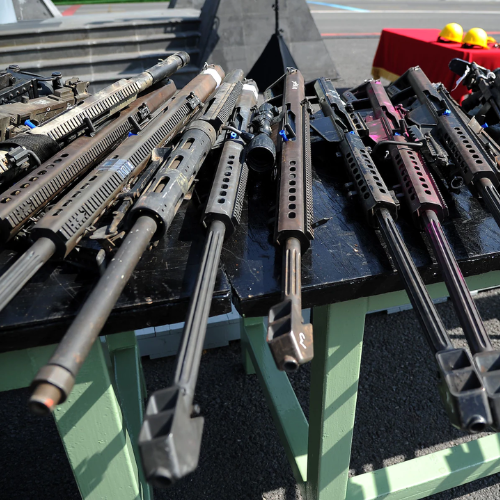The United States government may take action against companies that sell weapons to criminal organizations in Mexico. This possibility arises after the U.S. State Department declared certain organized crime groups in Mexico as terrorist organizations. This designation opens the door for financial sanctions and asset freezes for businesses found to be supplying arms to these groups.
This means that companies selling weapons, whether knowingly or unknowingly, to these criminal organizations could face severe penalties. If they are found to be aiding these groups, their bank accounts, properties, and other assets could be frozen. The U.S. government has the authority to stop these companies from doing business and could even take legal action against them.
U.S. Could Increase Presence in Mexico
There are growing concerns that this designation may lead to increased U.S. intervention on Mexican soil. The U.S. has already been using drones and surveillance aircraft to monitor criminal activity in Mexico. Some experts believe that the terrorist label could be used to justify even stronger actions, including potential attacks on drug cartel operations within Mexico.
Labeled as Terrorists: Cartels Face Unprecedented U.S. Action
Over the past few years, U.S. authorities have increased their intelligence gathering in Mexico, tracking cartel movements and weapons routes. While the Mexican government has expressed concerns about U.S. intervention, the new designation may give the U.S. a legal basis to take further action.
Weapons Industry’s Influence Raises Doubts
Despite the possibility of sanctions, many believe that the powerful U.S. weapons industry will likely resist any government action. The arms lobby, which represents gun manufacturers and sellers, is politically influential and has strong financial backing. This means that even though the U.S. government has the tools to punish companies involved in arms sales to Mexican cartels, it is unclear if they will actually take strong measures.
In the past, efforts to regulate arms sales have faced significant opposition in the U.S. While some companies have been penalized for illegal weapons exports, large-scale enforcement against the industry remains rare. Many believe that economic and political interests will prevent the U.S. from taking decisive action against weapons manufacturers.
As the situation develops, the international community will be watching to see if the U.S. follows through with sanctions or if political and financial interests will prevent any real consequences for companies supplying weapons to criminal organizations in Mexico.


